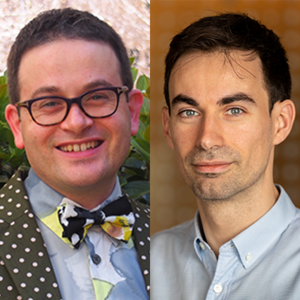Numbers have featured heavily in the headlines of 2020, most of them disquieting in nature: the number of new COVID-19 infections and deaths, or the number of new jobless claims in economies buffeted by the virus. But how can they properly account for the human toll of these headlines?Nick McGuigan and Alessandro Ghio have long wrestled with difficult questions such as this. The two Professors of Accounting at New Zealand’s Monash Business School realize the implications of quantifying human life for good and ill, and even life and death. Before the COVID-19 pandemic, the two were recognized with an Aspen Institute Ideas Worth Teaching Award for their course Global Issues in Accounting, which examines the connection between accounting and the global refugee crisis. As this difficult year draws to a close, we spoke with Nick and Alessandro about teaching new ways of understanding and thinking in accounting, and where they see hope for a more inclusive and sustainable future. 
The core premise of your course is that accounting both reflects society and influences society. How have the events of 2020 reinforced this view? Has anything surprised you?
In 2020, we have all been exposed to ‘accounting for death’ where governments, transnational bodies and companies continuously fight ‘for accountability of the true numbers’. The question is whether reducing life to numbers allowed communities around the world to keep the different actors accountable and most importantly, to be mindful of the value of life and death.
What has positively surprised us is the increasing awareness around the world of the limits of the dominant accounting value system based on neoliberal rationality. The global pandemic has brought to consciousness in many the failing structures of our current forms of organising. We hope that this newfound awareness will result in a faster shift towards more cooperation, integration and holistic thinking in accounting and broader society.
Your course embeds elements such as innovation and individual self-development into accounting curriculum; what have you learned through the process of introducing new and unique elements into your pedagogy?
The need to continuously unlearn to relearn both individually ourselves but also together with our students. This process requires a continuous disruption of ideas students often assume as dogma, for instance the neutrality and objectivity of accounting. It is important to embrace uncomfortableness as part of the learning process. The ultimate objective of developing critical thinkers cannot be compromised by the fear of students’ evaluations. New ways of understanding and thinking in accounting need to be experimented and played with so that the gatekeepers of traditional neoliberal economic values can open up to multiple perspectives and values. This is the key to ensure we stop consuming our planet and we start developing a sustainable and cooperative economy.
Where do you see hope in the way that accounting can be used to create better outcomes for society? What challenges lie ahead?
Accounting as a practice has and continues to develop approaches to the measurement of value, discharge accountability for that created value and act as the means through which value is mediated. Hope comes from accounting being agnostic and malleable. As we transition to a post-anthropogenic age, humans’ greatest function will be in regeneration. Human-designed systems of living, working, organising and functioning need to be in balance with natural ecosystems, that sustain us. Therefore, an integrated designed system that accounts for people and planet is needed.
A new accounting for people and planet must therefore allow for the complexity found within systems and be designed to balance multiple systems. Facing global, systemic crises of climate change, population growth, mass migration, food insecurity and natural resource scarcity requires the design of a broad and diverse set of accounting systems which are responsive to internal and external impacts, can expand and contract during times of change, and are flexible, malleable and able to move in different directions, withstanding the stresses and strains placed upon them during crises.
We are hopeful in the accounting profession’s ability to reach beyond the narrow confines of financial and monetary measurement, to cross-over into physical and scientific measurement and learn to carefully manage the paradoxical relationship between the abundance and limits simultaneously present in systems, and to set restrictions on consumption and redistribute surplus where needed. Accounting will learn to balance people and planet, cultivating regeneration.
Our greatest challenge therefore is to change the language of accounting, from one of accounting, to one of accountability.
As alumni from your course go into leadership positions across industries and sectors, what is the one lesson that you hope will stick with them throughout their careers?
Curiosity. Developing inquiring minds is at the core of everything we do in education. Future leaders who embody a sense of curiosity understand complexity, adapt to changing situations and come with an openness that will allow them to make lasting and significant societal contributions. Curiosity is integral to our humanity, cultivating this in others is how we push society forward.
![]()
Interested in more innovative insights for business education? Browse our complete collection of interviews with outstanding educators, and subscribe to our weekly Ideas Worth Teaching digest!

